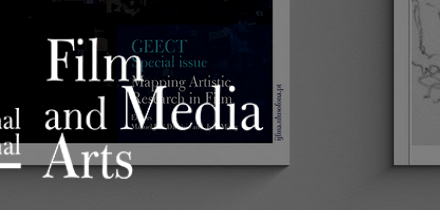Abstracts are sought for a proposed special journal issue, for which strong interest has been secured from a Q1 cultural studies journal.
Special issue editors: Dr Laura Minor (University of Salford) and Dr Claire Perkins (Monash University)
Deadline for abstracts: March 28, 2024.
Over the past decade, ‘imperfection’ has emerged as one of the most recognisable themes in Western television focused on and driven by women. Some of the most popular, debated and acclaimed series that have found recent transnational success centre on the lives of ‘messy’ millennials who are anxious, hedonistic, emotionally chaotic, hetero-pessimistic and self-destructive – from Girls (2012-2017) to Fleabag (2016-2019), Broad City (2014-2019), and This Way Up (2019- ). Television has become a key cultural form in foregrounding these representations, where increasing numbers of series that feature female leads and creators and attract female audiences are actively diverging from traditional, masculine notions of ‘quality’ TV (Lagerwey, Leyda & Negra, 2016). As part of this shift, popular discourse attending to the rise in female-driven content tends to value both creators and their work as ‘feminist’ based simply on the perception of creative agency and women-centred issues, thereby positioning contemporary television as both an important and fraught space for evolving understandings of what feminism is and does (Cattien 2019; Perkins & Schreiber 2019; McHugh 2023; Perkins et al 2023).
As a trope responding to the social conditions of gendered neoliberal capitalism in the second and third decades of the twenty-first century, the ‘imperfect’ woman attempts to express dissatisfaction and exhaustion with contemporary postfeminist imperatives to be confident, body positive, entrepreneurial and, in Jia Tolentino’s phrase, ‘always optimizing’ (2019). The ‘affective dissonance’ (Dobson & Kanai, 2019) of her negative emotions holds the potential to challenge and critique these conditions. However, like earlier postfeminist themes and tropes, this figure ultimately works to govern women and feminine identities. As Angela McRobbie has observed, discourses of imperfection might respond to the unviability of a perfect aspirational model of femininity, but they ultimately exist in a binary relationship to this model – allowing us to authentically embrace ‘who we are’ only insofar as this presents an opportunity to repair and recover through the strategy of resilience. As a technology of the self, the imperfect is interwoven with the perfect in its neoliberal promise of self-care, comprising what McRobbie calls a ‘dispositif for the management of emerging feminisms’ (2020: 43).
The millennial creators of series featuring ‘imperfect’ women, who often appear as their own protagonists, are seen as socially and politically conscious and the first to come of age with the internet and technological devices at their disposal. As an effect of this media saturation, millennials ‘create a sense of irony about the very possibility for authentic communication’ (Kaklamanidou and Tally, 2014: 4). This sensibility differs from the representation of disaffected women/girls of Generation Z, who tend to be more vulnerable, sincere and buoyant in their presentation and more afraid of being judged and ‘getting it wrong’ (Gill 2023), i.e. Christine from Greta Gerwig’s Lady Bird (2017) or Kayla from Bo Burnham’s Eighth Grade (2018). ‘Messy’ millennials have been described in academic literature and mainstream media as ‘antiheroines’ (Tally, 2016), as well as ‘unruly’ (Rowe, 1995; Petersen, 2017), ‘nasty’ (Robinson, 2016), ‘unlikeable’ (Rodgers, 2019) and ‘difficult’ (Pinedo, 2021). Yet these terms often simplify women’s experiences by emphasising their visibility, overlooking the regional distinctions and diverse social identities that typify female-driven TV (see Minor, 2023 & forthcoming). As a result, with the notable exception of key figures such as Michaela Coel, Issa Rae and Mindy Kaling (see Sobande 2019), women who are defined in these ways are, more often than not, white, middle-class, cisheteronormative and American or British.
With this special issue, we are calling for explorations of how the televised imperfect woman and her expression of the perfect-imperfect-resilience dispositif function both within and beyond this homogenised model of ‘messiness’. Simidele Dosekun (2020) argues that postfeminism itself is transnational, its subjects ‘scattered’ or ‘dispersed’ on television screens across the globe. The postfeminist woman of colour is, therefore, not an ‘impossible or derivative sight’, and by situating her as such, Dosekun argues that we reify, recentre, and make white women the definition of postfeminism itself (2020: 10). With this in mind, this special issue calls for investigations of what this ‘imperfect’ figure can show about how gendered neoliberalism both governs and damages women across a range of national and social contexts. Where and how does she appear in television series that may not be prioritised for global distribution and discussion? How does she convey specific concerns of class, race, sexuality, gender identity and ability that are overlooked in a dominant mode of imperfection that falls under the umbrella of what Taylor Nygaard and Jorie Lagerwey term ‘Horrible White People’ shows (2020)? Further, how exactly does this figure – in all her permutations – present opportunities and imperatives for resilience? How is this impression reinforced through media discourses and paratexts? Are there instances where such figures are able to escape or subvert the perfect-imperfect-resilience dispositif? In exploring these questions, we call for a range of methodological strategies, including textual analysis, media industries studies, authorship approaches and audience evaluation.
Possible areas for discussion include:
- imperfection and intersectionality
- updated models of feminine ‘unruliness’
- postfeminism and whiteness
- imperfection beyond the ‘dramedy’
- imperfect women in national and regional communities
- global iterations of ‘imperfection’
- imperfect women and disability
- imperfect women and neurodivergence
- imperfect women and ageing
Please submit a 350 word abstract and 100 word bio by March 28 2024 to: beyondmessymillennials@gmail.com
Once abstracts have been received a full proposal will be submitted to the interested journal by end of April 2024.
References
Butler, Jess’ For White Girls Only? Postfeminism and the Politics of Inclusion’. Feminist Formations 25.1 (2013).
Cattien, Jana. ‘When ‘feminism’ becomes a genre: Alias Grace and “feminist” television’. Feminist Theory 20.3 (2019).
Dosekun, Simidele. Fashioning Postfeminism: Spectacular Femininity and Transnational Culture. Illinois: University of Illinois Press, 2020.
Gill, Rosalind. Perfect: Feeling Judged on Social Media. Cambridge: Polity, 2023.
Kaklamanidou, Betty and Tally, Margaret. ‘Introduction: The Twenty-First Century Generation and the ABC Family Brand.’ In The Millennials on Film and Television: Essays on the Politics of Popular Culture, edited by Betty Kaklamanidou and Margaret Tally, 1-14. Jefferson, NC: McFarland & Company, 2014.
Lagerwey, Jorie, Julia Leyda and Diane Negra. ‘Female-Centered TV in an Age of Precarity’. Genders 1.1 (2016).
McRobbie, Angela. Feminism and the Politics of Resilience: Essays on Gender, Media and the End of Welfare. Cambridge: Polity Press, 2020.
McHugh, Kathleen. ‘Genre as Feminist Platform: Diagnosis, Anger and Serial TV’. Television and New Media 24.5 (2023).
Minor, Laura. ‘Alma’s (Not) Normal: Normalising Working-Class Women in/on BBC TV Comedy’. Journal of British Cinema and Television. 20.2 (2023).
Minor, Laura. Reclaiming Female Authorship in UK & Irish Television Comedy. Edinburgh: Edinburgh University Press, forthcoming.
Nygaard, Taylor and Jorie Lagerwey. Horrible White People: Gender, Genre and Television’s Precarious Whiteness. NY: NYU Press, 2020.
Perkins, Claire and Schreiber, Michele. ‘Independent women: from film to television’. Feminist Media Studies 19.7 (2019).
Perkins, Claire and Jodi Brooks, Janice Loreck, Pearl Tan, Jessica Ford, Rebecca J. Sheehan. ‘Doing film feminisms in an age of popular feminism’. Australian Feminist Studies 113 (2023).
Petersen, Anne Helen. Too Fat, Too Slutty, Too Loud. The Rise and Reign of the Unruly Woman. New York: Scribner UK, 2017.
Pinedo, Isabel C. Difficult Women on Television Drama: The Gender Politics of Complex Women in Serial Narratives. London & New York: Routledge, 2021.
Robinson, Joanna. ‘The Nasty Women of TV Comedy Have Arrived Just in Time’. Accessed November 16, 2023. https://vanityfair.com/hollywood/2016/10/samantha-bee-obama-female-anger-tv-comedy.
Rodgers, Barry. ‘Contemporary TV Shows Are Bringing out the Unlikeable Side of Female Leads’. Accessed November 16, 2023. https://grazia.co.in/people/contemporary-tv-shows-are-bringing-out-the-unlikeable-side-of-female-leads-4016.html.
Rowe, Kathleen. The Unruly Woman: Gender and the Genres of Laughter. Texas: Texas University Press, 1995.
Sobande, Francesca. ‘Awkward Black girls and post-feminist possibilities: Representing millennial Black women on television in Chewing Gum and Insecure’. Critical Studies in Television 14.4 (2019).
Tally, Margaret. The Rise of the Anti-Heroine in TV’s Third Golden Age. Newcastle-upon-Tyne: Cambridge Scholars Publishing, 2016.
Tolentino, Jia. ‘Always Be Optimizing’. Trick Mirror: Reflections on Self Delusion. NY: Random House, 2019.





